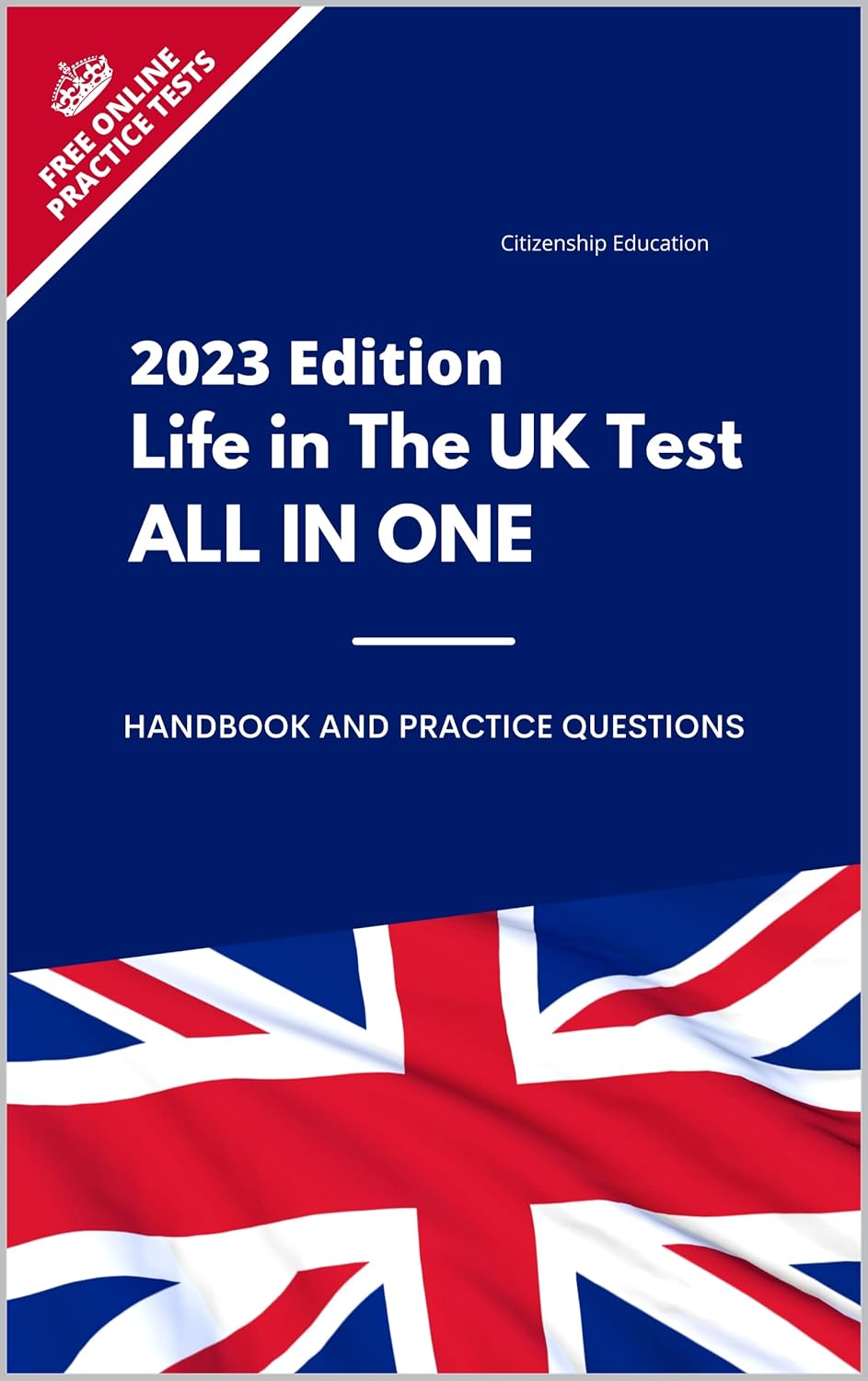
Life in the UK Test 2023: All in One Study Guide With Full Handbook and Practice Questions
FREE Shipping
Life in the UK Test 2023: All in One Study Guide With Full Handbook and Practice Questions
- Brand: Unbranded

Description
Make the date memorable by linking it to personal information – the year you, or a family member or friend, were born or the number of a house where you lived.
Plan your time wisely and refer to the timer on the screen when you need to. Keep in mind that the vast majority of people complete the test using no more than half the allotted time (about 22 minutes). The test lasts 45 minutes, so you don’t need to rush. To help you pass the exam, we provide this Life in the UK PDF. While the Simulator Exam will test your knowledge of various topics-you might not have a clear grasp on all information just yet. Some people find that using different coloured pens or pencils to highlight important information – names, dates, numbers, etc. – helps them to remember facts more easily. If you don’t know when your most productive time of the day is, try studying at different times during the day to find which time best suits you. There is no one “best” time to study; each person will have their own preference. Some people find they study better in the morning whilst others prefer studying during evening hours. Regardless of what time you prefer studying, ensure you get a sufficient amount of sleep. Your concentration will suffer if you’re tired. Passing the Life in the UK test is a compulsory requirement for anyone wanting to live permanently in Britain or become a British citizen. This practical study guide makes preparing for the test a lot easier.Plan your journey to the test centre so that you arrive with plenty of time to spare before the test begins. Aim to arrive at least half an hour early. The Roman army left Britain in AD 410 to defend other parts of the Roman Empire and never returned. Britain was again invaded by tribes from northern Europe: the Jutes, the Angles and the Saxons. The languages they spoke are the basis of modern-day English. Battles were fought against these invaders but, by about AD 600, Anglo-Saxon kingdoms were established in Britain. These kingdoms were mainly in what is now England. The burial place of one of the kings was at Sutton Hoo in modern Suffolk. This king was buried with treasure and armour, all placed in a ship which was then covered by a mound of earth. Parts of the west of Britain, including much of what is now Wales, and Scotland, remained free of Anglo-Saxon rule. The Life in the UK exam is challenging: students who want to pass it must devote a lot of time and effort in their preparation. But our Life in the UK PDF, web simulator and mobile app will help you pass this test! This guide will help you prepare for your Life in the UK by explaining the key concepts. Create a sentence in which the number of letters in each word are the same as the number you want to remember, e.g. for Columbus: A ( 1) good ( 4) discovery ( 9) is ( 2). If you find it easier, use words from your home language. Don’t spend too much time on a single question. If you find yourself struggling with a question, leave it and revisit it after answering the questions you’re able to. If you don’t know the answer to the question, take a guess and don’t worry too much. Remember, you’re allowed 6 incorrect answers.
The 2023 edition includes advice on what to study and unique study aids. Our updated appendices help students develop the comprehensive understanding they will need to pass the test. This book offers detailed advice on the types of questions you will be asked in the official test. Get a good night’s sleep before the day of your test. Your memory functions better when you’re well-rested.A mnemonic (pronounced nem-onic) is a memory aid; a technique for helping your brain to remember something. Mnemonics are commonly used for remembering lists, spellings, numbers or learning a new language. The word comes from Ancient Greek and means ‘of memory’. Mnemonics do not need to make sense. A common mnemonic is to use the first letter of each word you need to remember and use them to make up a sentence or story. Humour helps to make a mnemonic more memorable. For example, the sentence below: The Life in the UK PDF questions and answers provided here will help you study each topic. By taking practice tests, you can familiarize yourself with the format of the exam while also seeing correct answers to all multiple-choice questions—right away!
- Fruugo ID: 258392218-563234582
- EAN: 764486781913
-
Sold by: Fruugo
